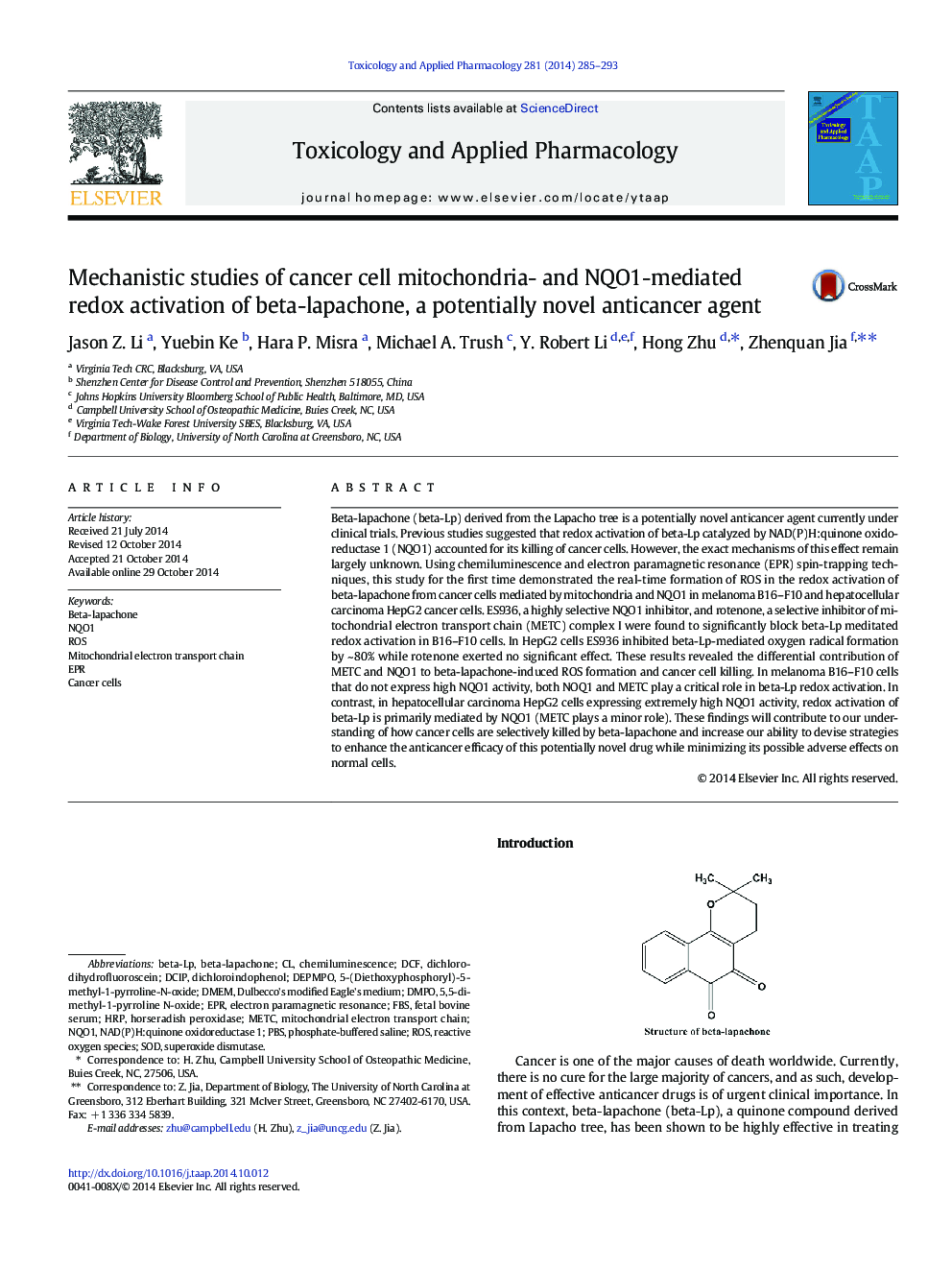| کد مقاله | کد نشریه | سال انتشار | مقاله انگلیسی | نسخه تمام متن |
|---|---|---|---|---|
| 5846078 | 1128452 | 2014 | 9 صفحه PDF | دانلود رایگان |
- Both isolated mitochondria and purified NQO1 are able to generate ROS by beta-Lp.
- The differential roles of mitochondria and NQO1 in mediating redox activation of beta-Lp
- In cancer cells with low NQO1 expression, mitochondria play a critical role in beta-Lp redox activation.
- In cancer cells with high NQO1 activity, redox activation of beta-Lp is primarily mediated by NQO1.
Beta-lapachone (beta-Lp) derived from the Lapacho tree is a potentially novel anticancer agent currently under clinical trials. Previous studies suggested that redox activation of beta-Lp catalyzed by NAD(P)H:quinone oxidoreductase 1 (NQO1) accounted for its killing of cancer cells. However, the exact mechanisms of this effect remain largely unknown. Using chemiluminescence and electron paramagnetic resonance (EPR) spin-trapping techniques, this study for the first time demonstrated the real-time formation of ROS in the redox activation of beta-lapachone from cancer cells mediated by mitochondria and NQO1 in melanoma B16-F10 and hepatocellular carcinoma HepG2 cancer cells. ES936, a highly selective NQO1 inhibitor, and rotenone, a selective inhibitor of mitochondrial electron transport chain (METC) complex I were found to significantly block beta-Lp meditated redox activation in B16-F10 cells. In HepG2 cells ES936 inhibited beta-Lp-mediated oxygen radical formation by ~Â 80% while rotenone exerted no significant effect. These results revealed the differential contribution of METC and NQO1 to beta-lapachone-induced ROS formation and cancer cell killing. In melanoma B16-F10 cells that do not express high NQO1 activity, both NOQ1 and METC play a critical role in beta-Lp redox activation. In contrast, in hepatocellular carcinoma HepG2 cells expressing extremely high NQO1 activity, redox activation of beta-Lp is primarily mediated by NQO1 (METC plays a minor role). These findings will contribute to our understanding of how cancer cells are selectively killed by beta-lapachone and increase our ability to devise strategies to enhance the anticancer efficacy of this potentially novel drug while minimizing its possible adverse effects on normal cells.
Journal: Toxicology and Applied Pharmacology - Volume 281, Issue 3, 15 December 2014, Pages 285-293
